|
I love hosting Management Development Programmes. Particularly for new and ‘accidental’ line managers. (People promoted into a management role because they were good at their previous role) There is as much learning about themselves as there is about their teams and how to manage them.
This little activity always goes down well. I ran this recently with a group of lovely NHS Midwives. I call it ‘weighted dots’ but I’m sure there’s probably a snazzier name for it! On this occasion we were exploring Emotional Intelligence and Leadership Styles, and as part of the activity I wanted them to: 🔴 Understand the styles 🟠 Consider their own natural preferences (This activity) 🟣 Recognise any gaps in their own styles 🟢 Identify scenarios within the organisation where one style might be better used than another. This image is the bit where I’m asking them to consider their own natural preferences. The set up is very simple: 🟡 Pop the print outs somewhere accessible 🟠 Allocate a set number of sticky dots per person (I often give 10 each) 🟢 Then explain that they are being asked to consider their own preference and to allocate any number of dots to the styles. 🟣 They could choose to allocate all 10 dots on one style or divide more equally (Although with 6 styles to choose from there are at least some decisions to be made about how to allocate the dots.) 🔵 Depending on group size the debrief can be done one at a time as they place their dots, or afterwards as part of a group discussion. I’ve also used weighted dots for other topics too, like ‘biggest challenges to effective delegation’, and prioritising a big list of action points. What I really like about this activity is it allows for self-reflection, movement, choice and insight into how different we all are too. Where would your dots be allocated? #curiouslighthouse #learninganddevelopment #Managementdevelopment "Creative learning is what takes place when the process of learning allows for creative exploration of a subject, time to digest knowledge before making a commitment to use it, and a culture of succeed or learn." - Nikie Forster L&D Consultant. Sound simple enough right? Well, yes and no. The trouble is we’re so use to receiving traditional training, where we expect to be given information and then construct action plans at the end of a session, we sometimes switch to autopilot. So, when someone rocks up and encourages us to find out the answers for ourselves… and oh by the way you don’t have to commit to anything at the end of the session, we can sometimes feel duped. What are we paying them for if I have to do all the work? How does Traditional Learning Techniques Differ from Creative Learning Principles? Traditional Learning Techniques
Creative Learning Principles
Why is Creative Learning Important?Ultimately, creative learning creates more independence, confidence and better decision making. As previously mentioned, a traditional approach is top down. ‘I have the correct answer, I will share it with you.’ This is often mirrored outside the training room with some managers coveting the ‘expert’ role. A creative learning approach is more collaborative. ‘I’ll help you explore what the answer could be.’ The more this is done, the more people seek collaboration and try things out for themselves, increasing innovation and self learning. Example of Traditional Training vs Creative LearningPicture the scene. A group have been asked to attend a management development training session. The group is split into two groups, they’ll cover the same topic, but group A’s trainer is a firm believer in traditional learning techniques, while group B’s trainer embraces creative learning principles. The following are just two possible ways these two trainers could approach this session. GETTING TO KNOW YOU Group A (Traditional Training). They kick off with a light icebreaker. The trainer has decided that ‘2 truths and a lie’ would be a good activity as it enables people to get to know each other better before they start the actual topic. Group B (Creative Learning). They kick off with a focused icebreaker. The trainer has decided to combine an activity that gets people to know each other, whilst also focusing in on their knowledge of the topic. The trainer asks the learners to construct a LEGO® Minifigure that represents how they see themselves as a manager, they then discuss what they chose and why. (The trainer makes a note of anything that needs extra attention in the session.) INITIAL TOPIC TRAINING Group A (Traditional Training). Throughout the first part of the session, the trainer is keen to share information and models that will aid the managers to become better in their day-to-day roles. There are PowerPoints, discussions, post-it notes, and role play to bring home the learning. The Trainer leads from the front and offers advice when tricky scenarios crop up. Group B (Creative Learning). Throughout the first part of the session, the trainer is keen to allow the learners to explore the topics by using ‘creative exploration’. They use props and activities to allow learners to discover possible answers. The trainer has prepared some models and stories to help the learners to dig deeper but will only use these if needed. DISCUSSION Group A (Traditional Training). Throughout the session, the trainer feels confident in presenting information to the learners and facilitating discussions by asking probing questions. Group B (Creative Learning). Throughout the session, the trainer feels confident in allowing the learners to explore. They facilitate discussions by allowing the learners to ask questions. CAPTURING LEARNING Group A (Traditional Training). Towards the end of the session, the trainer is keen for the learners to create action points. They believe this will drive transfer of learning back in the workplace. Group B (Creative Learning). Towards the end of the session, the trainer explains that the best ideas on how to use their new learning, may come to them after the session has ended. The trainer asks them to jot down any thoughts they may currently have, and then to review these ideas at a set time frame in the future and add to them. The trainer explains that a follow up session will be available to explore these thoughts further. AND FINALLY… Group A (Traditional Training). The trainer uses the final part of the session to recap on the key take away points and gain some feedback on how the session went. This session is now complete. Group B (Creative Learning). The trainer asks the learners to recap on the session and make a note of anything that would aid them further in this topic. An agreed time frame is set to review the learning and a story or activity is used to bring the session to a thoughtful close. No feedback is solicited at this stage, this will only be done after the review and via an online portal to allow people to create a considered response. Did you spot the differences? Before we go any further it’s important to say that there is nothing wrong with the traditional training outlined here. It’s a solid training session and learners will still go away having acquired some new knowledge. But the group that attended the creative learning session, will have had a much more immersive experience. And, because the session wasn’t closed down by agreeing to action points, they will feel more empowered to continue thinking about the topic and decide for themselves how they will apply their learning (with the help of the review session.) So, How Can You Increase the Creative Learning in Your Sessions?Here’s three ways to start introducing the concept of creative learning into your sessions.
About the Author Nikie Forster is the owner of Curious Lighthouse Learning Consultancy Ltd, focusing on increasing competence and confidence in Managers & Trainers. For over 20 years, Nikie has used elements of creative learning in her training, but it was only in more recent years that she realised that her 3-point creative learning principles could benefit other trainers and facilitators to increase engagement in their own sessions.
One of the many props Nikie uses to aid creative learning is LEGO®. To find out more head to: https://www.curiouslighthouse.co.uk/learning-and-development.html 25th April was national DNA day. As an amateur genealogist, I’ve traced thousands of my ancestors and last year had my DNA analysed to find out more about my ethnicity.
Based on my previous research, I wasn’t surprised to see most of my clan came from the Midlands and Yorkshire area. (I’m pretty sure there are entire villages related to me in some way!) Your own personal DNA is made up of 50% from your mother and 50% from your father. But it’s not a set 50%. If you have siblings, they may have a different variation of that 50% from each of your parents, which is why we’re all slightly different. This ‘50%’ got me thinking about what we ‘inherit’ in the workplace. I work with a lot of Line Managers, and quite often we discuss why they do things in a certain way… and, you guessed it, it’s usually because their own, or previous line managers have done it that way too. So, it’s not a hard stretch to consider that we ‘inherit’ a % of our Managerial DNA (M’DNA) from others. The good news is, that whilst we are pretty much stuck with the DNA we inherit from our parents, we are not stuck with the M’DNA we’ve inherited from previous managers. Being conscious of what you’ve inherited AND working out if it’s a good trait or not is the first step. Interested in finding out more about your M’DNA? Check out the Lightbulb Management Development programme where we delve deeper into the topic… along with a ton of solutions to improve the M’DNA you pass on to others too! Link to programme: https://www.curiouslighthouse.co.uk/lightbulb-managers-programme.html #curiouslighthouse #managementdevelopment #dna Apparently today (25th April) is National Telephone Day!
I’ve had this old phone for many years and love the idea that someone in the 1940/50’s installed this in their home as the latest fashion. Since then, many people will have used it to share good news, sad news, important news and of course simply gossip on it! What makes it even better, is it still works! And although we use our mobiles on a daily basis, this bit of history still sits proudly in the hallway (where all good phones use to sit!) and reminds me that while the tools we use to communicate are ever changing, the importance of communication remains the same. In fact, the topic of communication is the foundation to every Management Development programme I’ve ever run… because when we improve how we communicate, we improve our chances of better outcomes. So, happy National Telephone Day! I hope you have some great conversations... on the phone and in person! #curiouslighthouse #nationaltelephoneday #managementdevelopment Technically, you can delegate anything… the real question is HOW should you delegate it? If you are clear on WHAT and WHY, you’re much more likely to get a better result. The number one issue when delegating is clarity!
THE SOLUTION
Looking to increase your management skills? Then check out: https://www.curiouslighthouse.co.uk/lightbulb-managers-programme.html #curiouslighthouse #managementdevelopment #HRBP  The biggest challenge here is the perception of what feedback is and is not! (And avoiding the feedback sandwich like the plague!) Most managers understand the importance of feedback, but often hesitate because they’re not sure what response they’ll get from the individual. THE SOLUTION The best advice I can offer in this short space is to consider your CONTEXT and PURPOSE! 💡 Set the context before you start the conversation to enable the other person to understand where the feedback is coming from. 💡 Be specific. Using vague language like ‘That was great’ or ‘You shouldn’t have done that,’ are not going to help anyone. 💡 Be very clear on WHAT you want to change or continue. 💡 Be very clear on WHY you want it to change or continue. 💡 Give feedback as soon as possible. (Don't wait for 121s) 💡 Where possible, allow the individual to voice their interpretation of what happened and why BEFORE you offer you're feedback. Looking to increase your management skills? Then check out:www.curiouslighthouse.co.uk/lightbulb-managers-programme.html #curiouslighthouse #managementdevelopment #HRBP Many managers start their first manager role not fully understanding what the role is. For smaller fast-growing companies, this is usually because they simply haven’t had to think about it before and want to remain flexible as the role grows. For larger companies it could be down to lack of development planning around the transition from role to role.
THE SOLUTION: If you're the Manager that needs clarity, take the lead on this. Approach your boss and ask for a conversation to help define your role and what is expected from you. If you're the boss, take time to consider the key things you want from your line managers and ways you can support them to learn and grow in the role. (Keep it simple, focus on the top 3 things to start with and set milestone review dates to follow up.) Looking to increase your management skills? Then check out https://www.curiouslighthouse.co.uk/lightbulb-managers... #curiouslighthouse #managementdevelopment #hrbps When I was very young, we lived in Scotland. Certain things followed us when we moved to England, including having Haggis for Sunday lunch!
When I was about seven, I remember asking my Dad what a Haggis was. According to him, a Haggis was a mountain creature which had two legs shorter than the others to help it climb sideways around the hills and mountains of Scotland. Captivated by my knew knowledge I promptly offered this information to all who would listen to me at school, including my teacher whose eyebrows promptly raised and told me not to be so silly. I insisted that ‘My Dad’ had told me so it must be true! Often, we believe things we are told by those 'wiser’ than ourselves, sometimes without question. This doesn’t always go to plan! (Lopsided Haggis!) When I’m helping new managers, I sometimes offer a model or theory to help them understand a way of seeing how a situation might unfold… but what I also do, is offer the advice that CONTEXT and PURPOSE is more important than a model. What I’m really aiming for, is for them to be able to think for themselves rather than believe everything they hear… a lesson I learnt young! What have you been told that turned out to be false? #CuriouLighthouse #ManagementDevelopment #Haggis I recently found out my husband’s 13 x Great Uncle (Peter Heywood) was the man who snatched the torch from Guy Fawkes on 5th Nov 1605, thus preventing him from setting fire to the gunpowder that was about to destroy Parliament!
I love researching the lives of my family and finding little snippets that make them come to life. Not all are as noteworthy as stopping parliament being blown up, most are farmers, carpenters, church clerks, one or two crackpots and fair share of Coal Miners. But jobs are just one aspect of their lives. In my own ‘job’ as an L&D consultant I often speak to new managers who find the idea of talking about personal life with their team difficult. Some might even see it as intrusive, but the reality is people bring their personal lives to work. Especially now with so many of us working from home right now, they are literally juggling personal and professional life in one space. As a manager, finding out more about your team will help you build a bigger picture about what’s going on in their life and how this might be impacting on their work. More importantly how you can support them to get the best for them, you, and the company. I’m not suggesting you go researching their family history! But having a general conversation about how things are can really help to shed some light (see what I did there … lantern, light!) on their situation and make all the difference. Why not start by asking them what they are up to for Bonfire night! #CuriousLighthouse #managementDevelopment #GuyFawkes Do you ever do something really well in one context and then rubbish in another?
WORK: I'm often asked to host training for Managers around the topic of SETTING EXPECTATIONS. (It's something I do very naturally in work mode.) My best bit of advise... 'Get people to clarify back what they think you have asked them to do!' This way they have to think through the process and vocalise it, and you can then listen out for things that need to be further discussed. HOME: I asked my 8 yr old Son to make is own sandwich for lunch. I didn't set any expectations, I didn't ask him to clarify back what he was going to make, the result... a marshmallow and jellybean sandwich! #CuriousLighthouse #CreativeLearning “On the 12th day of Christmas a Manager said to me… WHAT IF THEY DON’T NEED ME?“
THE CHALLENGE Some managers worry that if their team get TOO good, they simply won't need them anymore... this is actually GREAT NEWS! THE SOLUTION This means that you can:
🎄 Sing-along to all 12 Manager solution at https://www.curiouslighthouse.co.uk/videos.html 🎄 #CuriousLighthouse #ManagementDevelopment #12DayOfManagerSkills “On the 11th day of Christmas a Manager said to me…
CAN’T I JUST BRIBE THEM?“ 🌟(Sing along to the 12 days of Christmas song!)🌟 … (10) Why set expectations? (9) How do I manage upwards? (8) Why aren’t they listening? (7) I don’t have time to do this! (6) Another 4-box model? (5) DO I REALLY HAVE TO DO THESE 1:1’s? (4) What can I delegate? (3) How do I give feedback? (2) Who are my team? (1) I don’t know what’s expected of me! THE CHALLENGE This was a genuine question I had from one exasperated manager once. “NO you can’t!” THE SOLUTION What you can do however is: ⛄️ Create a system of rewards and incentives. ⛄️ Have a good balance for individuals and/or team reward and recognition opportunities ⛄️ Consider that not everyone will want public recognition, a simple 1:1 acknowledgement will work too ⛄️ BUT REMEMBER to always include the employees when first setting up anything like this to ensure the reward is actually wanted! – (I once won 12 cuddly turtles during an incentive programme in a contact centre! 12 of them! ) 🎄Missed a day? Catch the all at: https://www.curiouslighthouse.co.uk/blogs 🎄 #CuriousLighthouse #ManagementDevelopment #12DayOfManagerSkills “On the 9th day of Christmas a Manager said to me…
HOW DO I MANAGE UPWARDS?“ 🌟(Sing along to the 12 days of Christmas song!)🌟 … (8) Why aren’t they listening? (7) I don’t have time to do this! (6) Another 4-box model? (5) DO I REALLY HAVE TO DO THESE 1:1’s? (4) What can I delegate? (3) How do I give feedback? (2) Who are my team? (1) I don’t know what’s expected of me! THE CHALLENGE The term 'manage upwards' is often seen as either manipulative or even cheeky. But the truth is, sometimes we need our own managers to do things, so we can succeed at doing our things! THE SOLUTION ⛄️ Be a grown up about it. ⛄️ If you need something from them, ask them! ⛄️ Consider the conversation before hand, what will they want to know, what objections might they have, will it cost anything, what impact will it have on your workload etc. ⛄️ Choose your timings carefully and be prepared to be answer more questions 🎄Keep a look out for further days of Christmas to help develop Manager skills!🎄 #CuriousLighthouse #ManagementDevelopment #12DayOfManagerSkills “On the 8th day of Christmas a Manager said to me…
WHY AREN’T THEY LISTENING?“ 🌟(Sing along to the 12 days of Christmas song!)🌟 … (7) I don’t have time to do this!” (6) Another 4-box model? (5) DO I REALLY HAVE TO DO THESE 1:1’s? (4) What can I delegate? (3) How do I give feedback? (2) Who are my team? (1) I don’t know what’s expected of me! THE CHALLENGE Managers often feel their suggestions and comments aren't being taken seriously, either by their team members or by more senior managers. This is usually because they are simply not using the right language THE SOLUTION ⛄️ Consider things from the viewpoint of the person you are communicating with. ⛄️ Team Members respond better when they know WHY they are being asked to do something. ⛄️ Senior Managers respond better when they understand the impact to the bigger picture. ⛄️ Tailor your message to different people for a better result. 🎄Keep a look out for further days of Christmas to help develop Manager skills!🎄 #CuriousLighthouse #ManagementDevelopment #12DayOfManagerSkills “On the 7th day of Christmas a Manager said to me…
I DON’T HAVE TIME TO DO THIS!” 🌟(Sing along to the 12 days of Christmas song!)🌟 … (6) Another 4-box model? (5) DO I REALLY HAVE TO DO THESE 1:1’s? (4) What can I delegate? (3) How do I give feedback? (2) Who are my team? (1) I don’t know what’s expected of me! THE CHALLENGE The problem ISN’T TIME management, it’s TASK management! When people say, ‘I don’t have time to do this!’ it’s either because they don’t want to do it, or because they haven't found the right solution to their task management problem yet. THE SOLUTION If something feels like a chore and you don’t want to do it, you should really look at why. Is it that you simply don’t know how, or that it goes against something you believe in? If it’s a case of simply getting organised, check out these options: ⛄️ Agile thinking - sprint runs ⛄️ Kanban - simple column approach ⛄️ …and good old Excel - options to spreadsheet your task till your hearts content. The trouble is all this takes time too, so make sure you pick the one that works for you best and master it! #CuriousLighthouse #ManagementDevelopment #12DayOfManagerSkills “On the 6th day of Christmas a Manager said to me…
ANOTHER 4-BOX MODEL? 🌟(Sing along to the 12 days of Christmas song!)🌟 … (5) DO I REALLY HAVE TO DO THESE 1:1’s? (4) What can I delegate?” (3) How do I give feedback?” (2) Who are my team? (1) I don’t know what’s expected of me!” THE CHALLENGE 4-box models are neat and tidy and help convey possible solution to managers questions. The issue is there are a lot of them, and it might seem like you have to remember them all to be a great manager! THE SOLUTION ⛄️ Remember that most training models or theories are there to add consideration to your personal journey NOT to constrain you. ⛄️ The more you know; the more choice you have in how you deal with something. ⛄️ Pick the one’s that work for you and ensure you personalise it for each situation and individual. 🎄Keep a look out for further days of Christmas to help develop Manager skills!🎄 #CuriousLighthouse #ManagementDevelopment #12DayOfManagerSkills “On the 5th day of Christmas a Manager said to me…
DO I REALLY HAVE TO DO THESE 1:1’s? 🌟(Sing along to the 12 days of Christmas song!)🌟 … (4) What can I delegate?” (3) How do I give feedback?” (2) Who are my team? (1) I don’t know what’s expected of me!” THE CHALLENGE 1:1’s can take time. Time to schedule, time to prep for, time to run, time to write up etc. And we all know that one of the biggest enemies of Managers is lack of time, right? THE SOLUTION ⛄️ One of the key points of 1:1s are to allow team members individual time with their manager to discuss what’s going on for them. If they feel rushed or like they’re an inconvenience, they simply won’t open up ⛄️ Find a frequency that works well for you both (Newer team member may benefit from more frequent, structured meetings, while more established members may prefer a more relaxed approach.) ⛄️ Doing your regular 1:1s will help with any annual review later down the line REMEMBER ... DO THEM, but do them in a way that works for the you, them and the company! 🎄Keep a look out for further days of Christmas to help develop Manager skills!🎄 #CuriousLighthouse #ManagementDevelopment #12DayOfManagerSkills “On the 4th day of Christmas a Manager said to me…
WHAT CAN I DELEGATE?” 🌟(Sing along to the 12 days of Christmas song!)🌟 … (3) How do I give feedback?” (2) Who are my team? (1) I don’t know what’s expected of me!” THE CHALLENGE Technically, you can delegate anything… the real question is WHY should you delegate it? THE SOLUTION ⛄️ You can delegate to reduce your own workload …but you can also delegate to increase development opportunities. ⛄️ If you are looking to reduce your own workload ensure it’s not just the sludge you’re passing off, or people will see you as having sloppy shoulders ⛄️ If you are delegating to help develop someone, ensure you’re staggering the skill level, and supporting them in the process so it’s not too much too soon 🎄Keep a look out for further days of Christmas to help develop Manager skills!🎄 #CuriousLighthouse #ManagementDevelopment #12DayOfManagerSkills “On the 3rd day of Christmas a Manager said to me…
HOW DO I GIVE FEEDBACK?” 🌟(Sing along to the 12 days of Christmas song!)🌟 … (2nd ) Who are my team? (1st ) and… I don’t know what’s expected of me!” THE CHALLENGE The biggest challenge here is the perception of what feedback is and is not! (and avoiding the feedback sandwich like the plague!) THE SOLUTION The best advice I can offer in this short space is to consider your purpose and context! ⛄️ Set the context before you start to enable the other person to understand what it relates to ⛄️ Be specific (using vague language like ‘that was great’ or ‘You shouldn’t done that’ are not going to help anyone ⛄️ Be very clear on why you want to change or continue 🎄Keep a look out for further days of Christmas to help develop Manager skills! 🎄 #CuriousLighthouse #ManagementDevelopment #12DayOfManagerSkills “On the 2nd day of Christmas a Manager said to me…
WHO ARE MY TEAM?” --- (And… I don’t know what’s expected of me!”) 🎄 (Sing along to the 12 days of Christmas song!)🎄 THE CHALLENGE Undefined reporting line can cause havoc with communication and generally getting things done THE SOLUTION 1. Hold meeting with all managers to define split between Technical Management accountability (projects, products etc) and Personal Management accountability (1:1’s, holiday requests, development etc) 2. Draw up a org chart that represents this 3.Hold meeting with team members to highlight this and how it might work going forwards 4.Review regularly 🎄Keep a look out for further days of Christmas to help develop Manager skills! 🎄 #CuriousLighthouse #ManagementDevelopment #12DayOfManagerSkills “On the 1st day of Christmas a Manager said to me…
I DON'T KNOW WHAT'S EXPECTED OF ME!” 🎄🌟(Sing along to the 12 days of Christmas song!) 🌟🎄 THE CHALLENGE: For smaller fast growing companies, this is usually because they simply haven’t had to think about it before. For larger companies it could be down to lack of development planning around the transition from role to role. THE SOLUTION: If you're the Manager that needs clarity, take the lead on this. Approach the/your boss and ask for a conversation to help define your role and what is expected from you. If you're the boss, take time to consider the key things you want from your line managers and ways you can support them to learn and grow in the role. (Keep it simple, focus on the top 3 things to start with and set milestone review dates to follow up.) 🎄Keep a look out for further days of Christmas to help develop Manager skills! 🎄 #CuriousLighthouse #ManagementDevelopment #12DayOfManagerSkills As the plethora of perfectly carved pumpkins start to appear on social media, I find myself saying ‘I’m happy for these people, they have creativity, patience and time to spare’..,
But I also find my inner voice saying... ' I bet what they didn't have was a bouncy overexcited 7-year-old wielding a Sharpie and dinner knife in front of them, declaring that the pumpkin only needs half its head, otherwise we wouldn't be able to see the brains falling out! So we set everything up, get ready to carve, the excitement at fever-pitch and then… he’s loses interest and we end up with slightly quirky, rather than a scary looking pumpkin! I had several options: 1. TRY and coerce my Son into creating a more elegant pumpkin masterpiece 2. LIE and create my own ‘slightly better’ pumpkin and take a photo of him next to it 3. BUY a ready-made carved pumpkin and be vague about its creation Or… 4. Let him loose (safely!) with his creativity and equipment and see what we end up with! Being a manager sometimes means we look at others and judge ourselves against their; results, team, awards etc. But when you’re too busy looking at what others are doing you can miss out on the talents of your own team. So, whether your switching off the lights and pretending you're not at home, or out and about with the Zombies, Witches and Batman, (there's always one dressed as Batman!) have a ‘perfectly’ personal Halloween. Last week I opened a communications workshop for managers by talking about Honeybees! Yes, you did read that right… Honeybees!
Honeybee’s have communication nailed. They locate flowers for nectar and let everyone in the hive know exactly where to find them. How? They do a waggle dance! “If you’re telling me I’ve done something wrong, then at least give me enough information to do it right next time!”
Many Managers struggle with giving real-time feedback. The concept of praising and correcting a team member in the moment can feel uncomfortable. More so for ‘Accidental Managers.’ Those who have been promoted to manage a team because they were good at their previous role… which probably involved very little people management at all! In this article we’ll look at what feedback is and is not, and we’ll also introduce a simple four-part model that you can use for positive and constructive feedback. Let’s dive in… Management Development Conversations“Just because YOU think you’re right, doesn’t actually make you right!” This was a conversation I heard between two learners during a Management Development workshop I was hosting.
It opened a really interesting discussion about how much some people hold on to their views in order to prove themselves correct. Even when they start to believe there may be merit in other people’s views. Some of the best Managers I’ve worked with have a talent for being able to step back and take on other people’s opinions. These Managers also happen to be excellent at conversation and communication. Coincidence? I think not! |
Categories
All
Nikie ForsterLearning doesn't just happen in a training session. It happens all around us! Follow my ramblings and continue to see the world in a different light! Archives
July 2024
|
Developing the people, who develop your people
|
Throughout this website you will see reference to using LEGO® bricks. The LEGO Group does not sponsor, authorise or endorse Curious Lighthouse Learning Consultancy Ltd.
©2024 The LEGO Group – LEGO® SERIOUS PLAY®, the Minifigure and the Brick and Knob configurations are trademarks of the LEGO Group. Any activity using the LEGO® SERIOUS PLAY® approach, method and materials build on the LEGO® SERIOUS PLAY® Open-source guidelines made available by the LEGO Group under a Creative Commons licence. |
Copyright © 2015-2024 Curious Lighthouse Learning Consultancy Limited. ALL RIGHTS RESERVED |

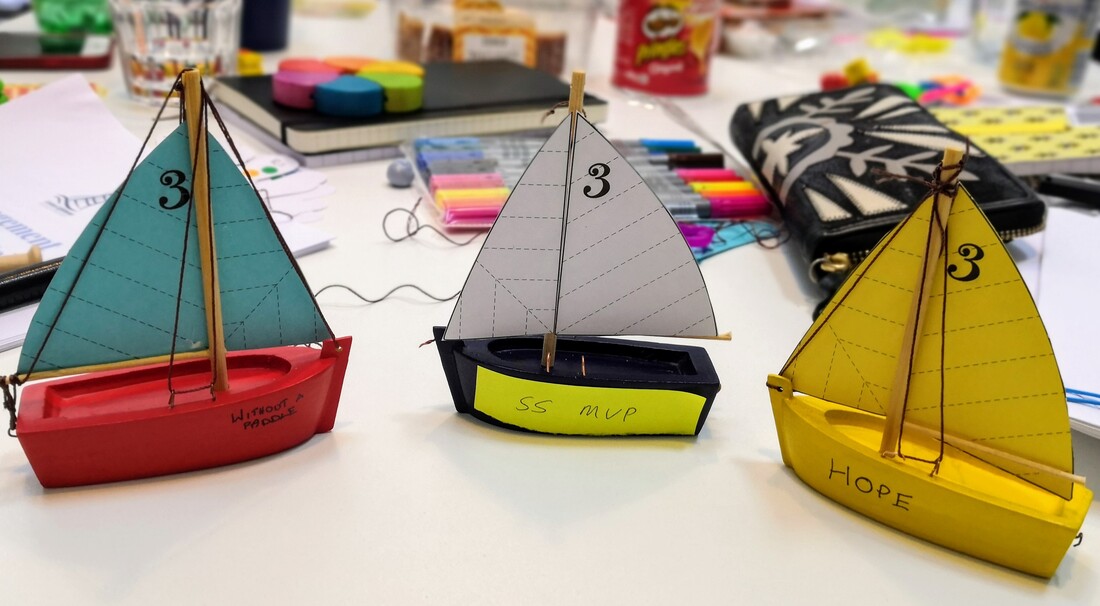
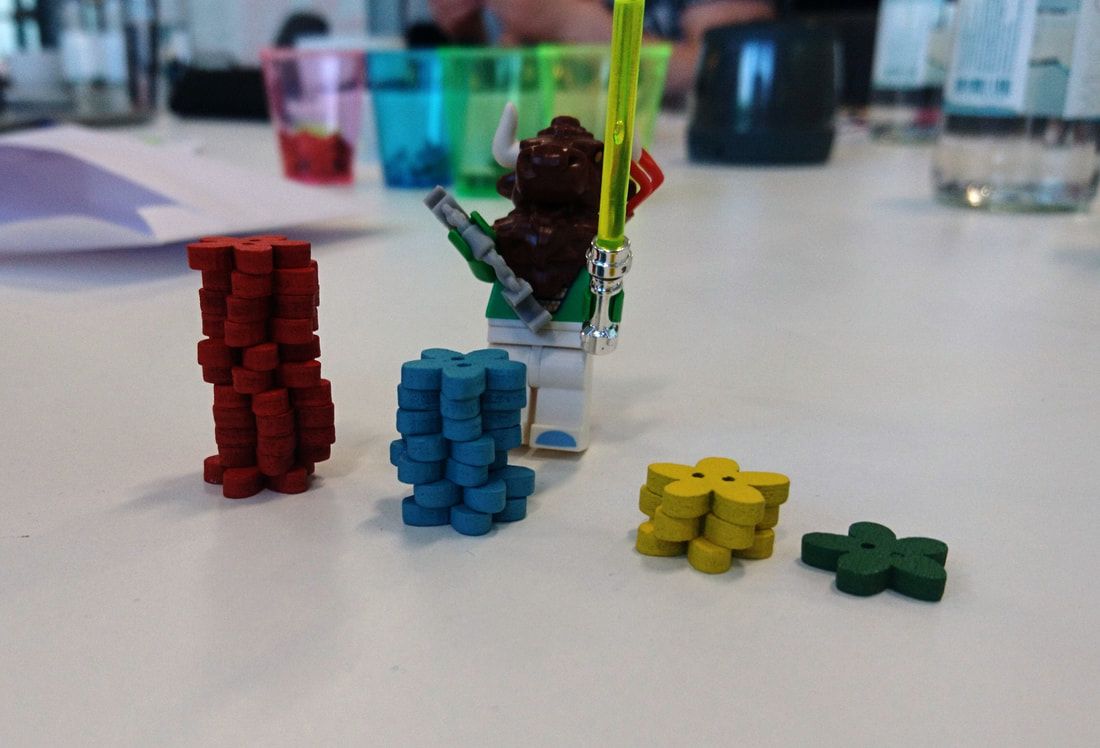

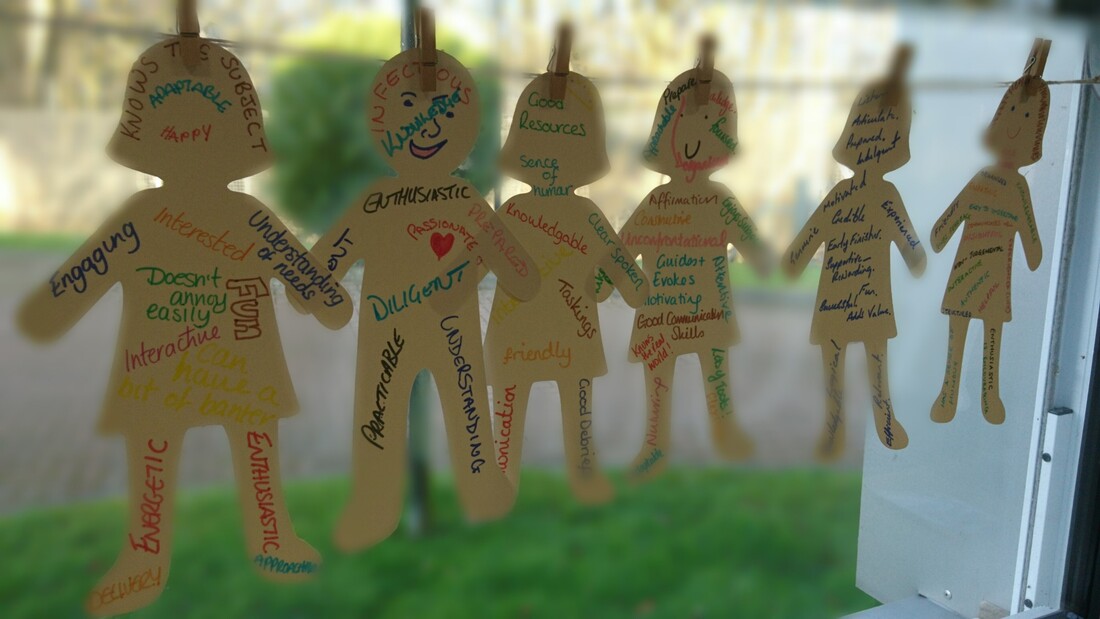
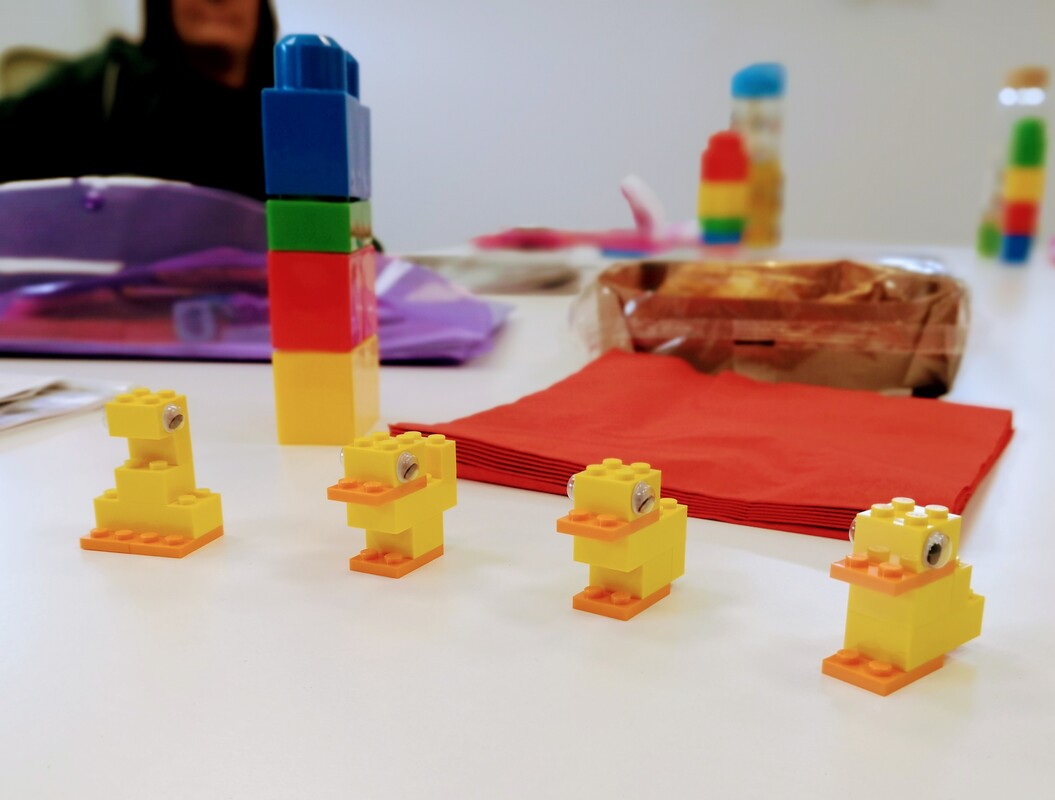

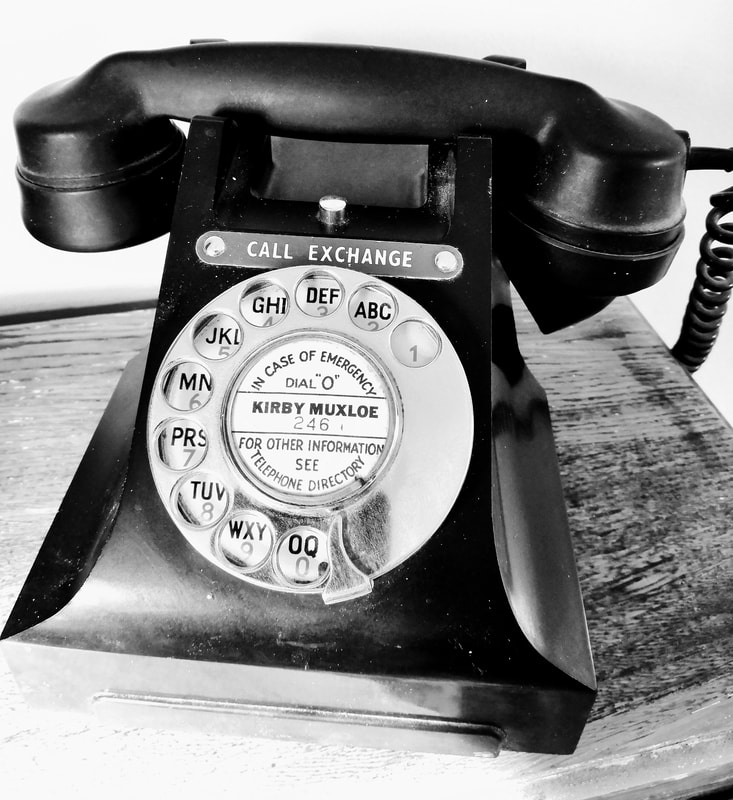


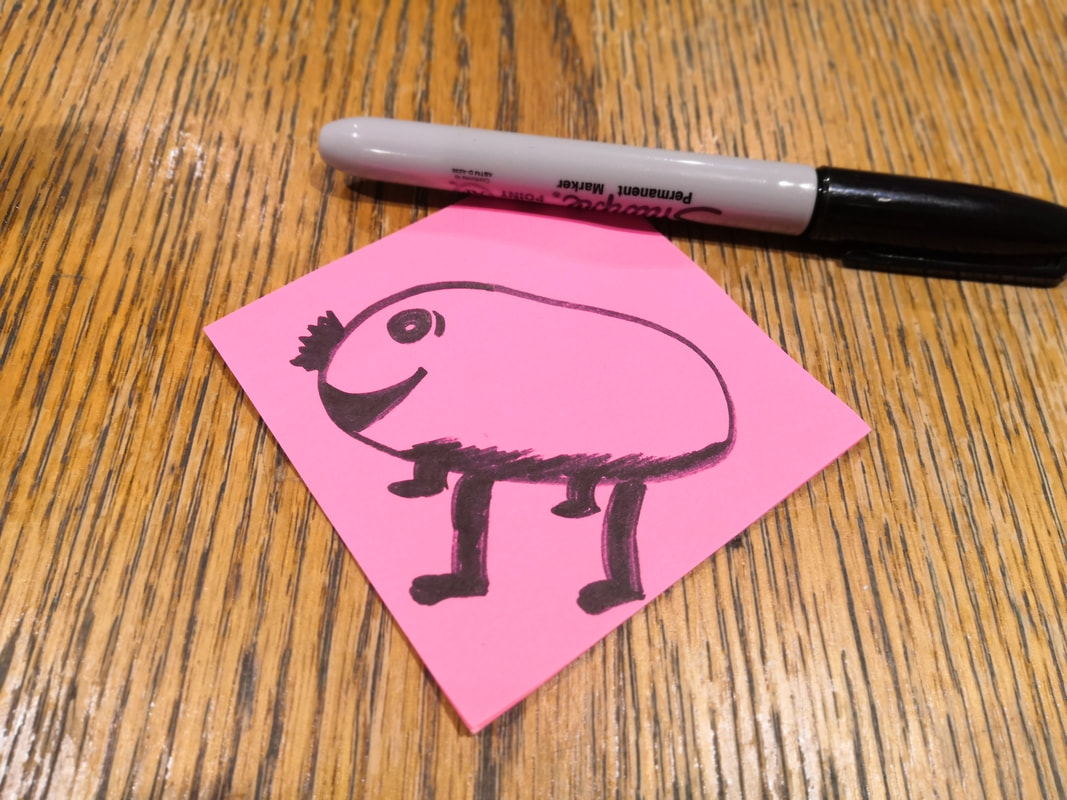





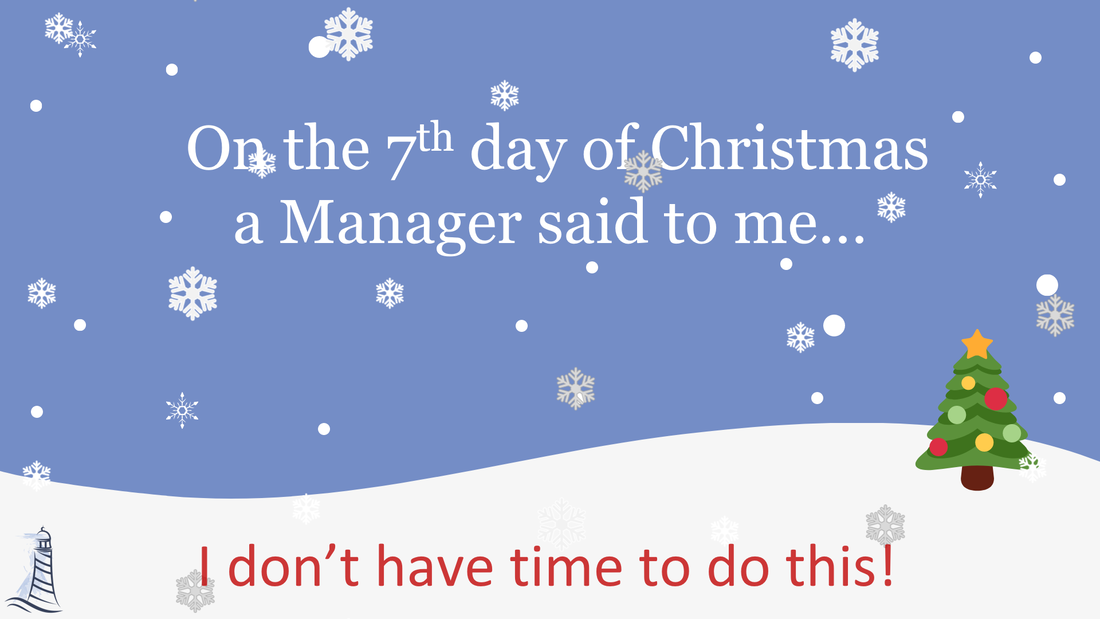








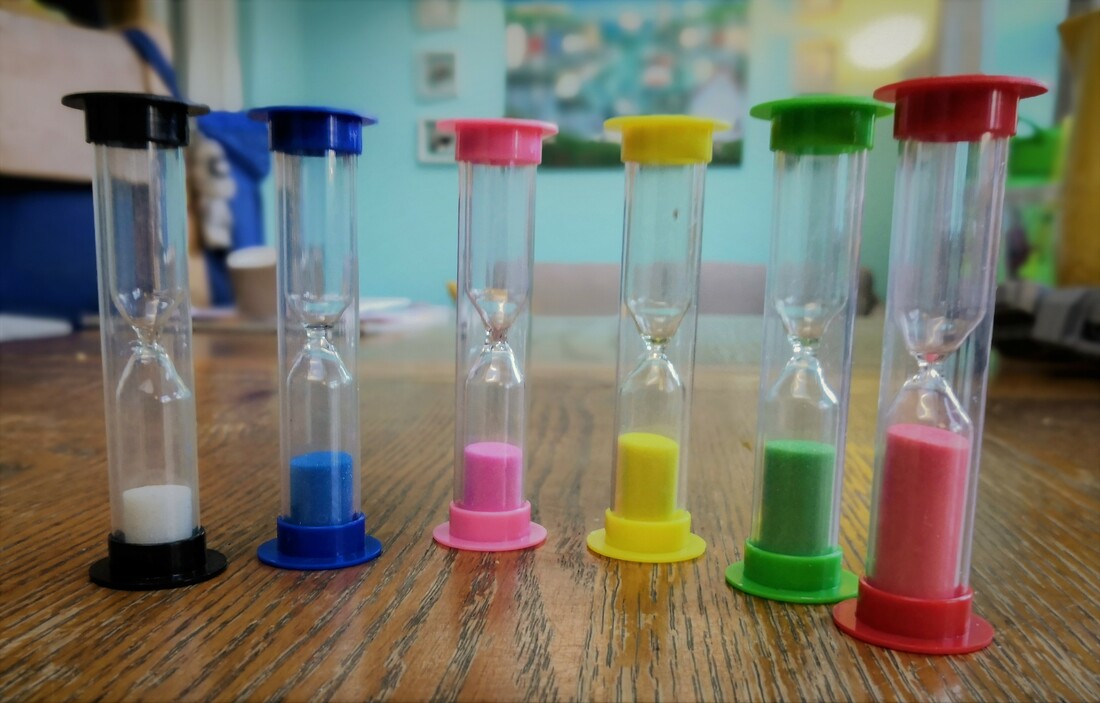

 RSS Feed
RSS Feed
